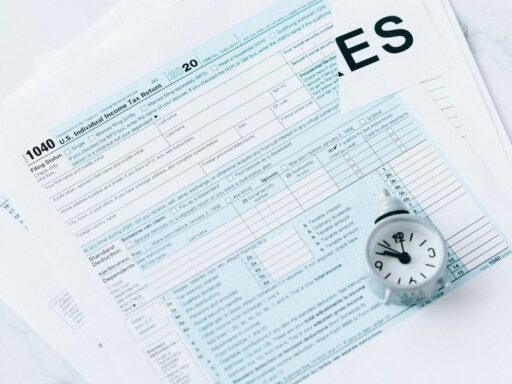When you consider leaving America for good, understanding the financial implications becomes paramount. The decision to relocate internationally is not just about embracing a new culture or seeking better opportunities; it’s also about navigating the intricate financial pathways of such a move.
If you want to invest as an expat or high-net-worth individual, you can email me (advice@adamfayed.com) or use these contact options.
Why People Choose to Leave America
Many individuals decide on leaving America for good due to various reasons:
Economic Reasons
The allure of better job opportunities, higher salaries, or a lower cost of living often drives people to think about leaving America for good. Some countries offer tax incentives for skilled professionals, making the financial benefits even more enticing.
According to a report by CNBC, amidst the rise of COVID-19 cases and political uncertainties, many Americans have been contemplating moving abroad.
Personal and Lifestyle Choices
Beyond economics, personal and lifestyle choices play a significant role. Some seek a slower pace of life, while others chase the thrill of new experiences. Leaving America for good can fulfill these desires.
Countries like Costa Rica, Belize, Portugal, and Uruguay have become popular choices for Americans due to their affordable living costs, welcoming communities, and quality of life.
The Cost of Moving Internationally
Leaving America for good isn’t just about packing your bags. It involves costs:
Shipping Personal Belongings
When you decide on leaving America for good, shipping your belongings becomes a priority. Engage reliable international movers, and ensure you budget for this significant expense.
The cost can vary depending on the volume of goods, the distance, and the mode of transportation.
Visa and Residency Fees
Different countries have varied visa and residency fees. Before leaving America for good, research and budget for these costs.
For instance, countries like Belize allow U.S. citizens to stay for up to one month without a visa. However, you’d need to renew your visa every 30 days for longer stays.
On the other hand, Portugal offers several types of visas, including ones for students, self-employed individuals, investors, and retirees.
Initial Housing and Settling Costs
Upon leaving America for good, you’ll need a place to stay. Whether renting or buying, factor in these initial costs.
For example, a couple can live comfortably in Atenas, Costa Rica, for about $1,518 a month, while in Montevideo, Uruguay’s capital, the estimated living cost is around $3,200 a month.
It’s essential to research and compare living costs in your desired destination before making the move.
Evaluating Your Current Financial Situation
Before leaving America for good, evaluating your financial situation thoroughly is crucial. This assessment will provide a clear picture of where you stand and what steps you need to take to ensure a smooth transition.
Assessing Assets and Liabilities
Understanding your assets and liabilities gives you a comprehensive view of your financial health.
Owning property presents a significant decision point when considering leaving America for good.
- Selling: This option provides liquidity, which can be useful for settling in a new country. However, consider the current real estate market conditions and potential capital gains tax implications.
- Renting Out: You create a steady income stream by renting out your property. This choice can be beneficial if you’re unsure about permanently leaving America for good or if you want to retain an asset in the U.S. Remember to factor in property management costs, especially if you won’t be around to oversee the property.
Your investment portfolio requires careful attention before leaving America for good.
- Accessibility: Some investments, especially certain retirement accounts, might have restrictions or penalties for withdrawals from abroad. Research each investment product to understand any limitations.
- Tax Implications: Leaving America for good doesn’t mean you’re free from U.S. taxes. Understand the tax obligations for your investments, especially when withdrawing abroad.
Creating a Pre-Move Budget
A detailed budget will guide your financial decisions as you prepare for this significant move.
Estimating Moving Expenses
Moving internationally is a costly undertaking. When you’re leaving America for good, consider:
- Movers: International moving companies can help transport your belongings, but their services come at a cost. Get multiple quotes and check reviews to select a reliable mover.
- Travel Costs: This includes airfare for you and any family members, potential quarantine costs, and initial accommodation expenses upon arrival.
- Settling Costs: After leaving America for good, you’ll have initial expenses like deposits for housing, utility setup fees, and basic household items.
Emergency Funds for Unexpected Costs
Life is full of surprises, especially when transitioning to a new country.
- Safety Net: Financial experts often recommend having three to six months of living expenses saved up. When leaving America for good, consider leaning towards the higher end of this range due to the uncertainties of moving abroad.
- Unforeseen Expenses: These can range from medical emergencies to unexpected travel. Having a robust emergency fund ensures you can handle these challenges without derailing your financial plans after leaving America for good.
Tax Implications of Leaving America for Good
Leaving America for good is a monumental decision, and while it may seem like a fresh start in many ways, it’s essential to remember that U.S. taxes will still play a role in your financial landscape.
U.S. Tax Obligations for Expatriates
For those contemplating leaving America for good, it’s crucial to understand that being a U.S. citizen or resident alien means the rules for filing income, estate, and gift tax returns remain largely the same, whether you reside in the U.S. or abroad.

This means you’re subject to tax on worldwide income from all sources. You must report all taxable income and pay taxes according to the Internal Revenue Code.
The Foreign Earned Income Exclusion
One of the benefits you might enjoy after leaving America for good is the Foreign Earned Income Exclusion.
This provision allows qualifying U.S. taxpayers living abroad to exclude a certain amount of their foreign-earned income from U.S. taxation.
By leveraging this, you can significantly reduce your U.S. tax liability. However, you must file a U.S. tax return to benefit from such exclusions.
Reporting Foreign Bank Accounts
Financial transparency is paramount, especially when it comes to international finances. Even after leaving America for good, if you own foreign financial accounts, you must report them to the U.S. Treasury Department.
This is mandatory even if these accounts don’t generate any taxable income. Specifically, you should file a Report of Foreign Bank and Financial Accounts (FBAR) electronically. This ensures you remain compliant and avoid potential legal complications.
Understanding Tax Treaties and Double Taxation
Before you finalize your plans of leaving America for good, it’s wise to delve into the world of tax treaties.
The U.S. has tax treaties with numerous countries designed to prevent double taxation for individuals earning income in both the U.S. and the foreign country.
These treaties can be beneficial, ensuring you aren’t taxed twice on the same income. Familiarizing yourself with relevant tax treaties can save you significant taxes and prevent legal misunderstandings.
Moreover, it’s worth noting that taxpayers must also report virtual currency transactions to the IRS on their tax returns. Just like any other property transaction, these are taxable by law.
So, if you’re involved in virtual currency dealings, ensure you’re transparent about it, even after leaving America for good.
Banking and Financial Services Abroad
The dynamics of banking undergo a significant transformation when leaving America for good. It’s not just about a change in currency; it’s about understanding a whole new system, adapting to different banking norms, and ensuring your money remains accessible and safe.
Opening a Bank Account Overseas
Before leaving America for good, gathering all the necessary documents is crucial.
Different countries have varied requirements, but typically, you’ll need proof of identity, proof of address, and sometimes, a reference from your current bank.
Ensure you have these documents in order, as many countries emphasize in-person banking, much like China, where most banking transactions require a physical presence.
Understanding Foreign Banking Fees
Every country has its banking fee structure. Before leaving America for good, it’s wise to research the common fees associated with banking in your new country.
For instance, while ATMs are abundant in places like Beijing, some local banks might charge transaction fees. Being aware of these charges helps you avoid unexpected costs.
Transferring Money Internationally
Currency exchange rates fluctuate regularly. When you’re on the brink of leaving America for good, keeping an eye on these rates is essential.
This vigilance ensures you get the best value for your money, especially during significant transfers or when making large purchases abroad.
Using International Money Transfer Services
After leaving America for good, you’ll often find the need to transfer money across borders, be it for personal reasons or investments. It’s vital to choose a reliable money transfer service.
Major international banks, like Citibank and HSBC, have branches in many countries, including cities like Beijing. These banks often offer seamless international money transfer services.
However, always be cautious of the fees associated with these transfers and ensure the safety and speed of the transaction.

Navigating Local and International Banks
While international banks like Citibank and HSBC have established their presence in many countries, local regulations might limit their services.
For instance, many international bank branches in Beijing primarily service corporate accounts and might offer limited ATM services.
On the other hand, local banks, such as the Industrial and Commercial Bank (ICBC) or China Merchants Bank, offer many services and have a vast network of ATMs.
When leaving America for good, it’s beneficial to have local and international bank accounts to leverage each offer’s advantages.
Investing While Living Abroad
Leaving America for good often prompts individuals to reevaluate their investment strategies. The global market offers a plethora of opportunities, but it’s crucial to approach them with a well-informed mindset.
International Investment Opportunities
The world of international investments is vast and diverse. By leaving America for good, you open doors to markets that might have been previously overlooked.
Real Estate Investment Overseas
Real estate remains a favored investment for many. After leaving America for good, you might find that property markets in other countries offer attractive returns. For instance:
- Asian Markets: Countries like Thailand and the Philippines have seen steady growth in their real estate sectors. They offer affordable properties with potential for appreciation.
- European Destinations: Places like Portugal and Spain offer beautiful landscapes and golden visa programs that attract international investors.
- Central and South America: Countries like Mexico and Costa Rica have become hotspots for expatriates, driving property demand.
Before making any real estate investment after leaving America for good, always conduct thorough research and consult local experts.
Stock Markets and Mutual Funds
The global stock market is vast, and leaving America for good gives you the chance to diversify your portfolio:
- Emerging Markets: Countries like India, Brazil, and South Africa offer stocks that might provide higher returns, albeit with higher risks.
- Developed Markets: European and Asian stock exchanges, such as the London Stock Exchange or the Tokyo Stock Exchange, offer stability and a range of investment options.
- Mutual Funds: Many funds focus on specific regions or sectors. By diversifying your investments, you can potentially hedge against risks.
Risks and Rewards of Foreign Investments
Every investment carries risks, which become even more pronounced when looking at international markets after leaving America for good.
- Currency Fluctuations: Exchange rates can significantly impact your returns. A strong dollar might diminish your gains in other currencies, while a weak dollar can amplify them.
- Political and Economic Instability: Some countries might offer high returns but come with political or economic uncertainties. Always stay updated on local news and events.
- Regulatory Differences: Each country has its own set of regulations concerning foreign investments. Familiarize yourself with these before committing your funds.
Planning for Healthcare and Insurance
Ensuring you have the right healthcare and insurance coverage is crucial when leaving America for good. As you transition to a new country, you’ll encounter different healthcare systems and insurance norms.
Health Insurance Options for Expatriates
Before leaving America for good, you must understand the health insurance landscape of your destination country. This knowledge will help you make informed decisions and ensure adequate coverage.
Local Health Insurance Plans
Every country has its health insurance providers and plans. Before leaving America for good, research the leading insurance companies in your destination country.
Understand the coverage they offer, the cost of premiums, and any exclusions. This research ensures you select a plan that aligns with your needs and budget once you arrive.
International Health Insurance Policies
International health insurance policies are ideal for those leaving America for good but planning to travel frequently or live in multiple countries.
These policies cover various nations, ensuring you remain protected wherever you go.
When considering leaving America for good, evaluate the benefits of such policies, especially if your lifestyle involves regular travel.
Life and Property Insurance Considerations
Life Insurance for Expatriates
Your current life insurance policy might not provide coverage once you’re outside the U.S. Before leaving America, check with your provider.
If they don’t offer international coverage, consider purchasing a new policy that does. Ensure your loved ones remain protected, no matter where you reside.
Property Insurance Abroad
You’ll need property insurance if you plan to purchase property after leaving America for good. This insurance protects against damages to your home and possessions.
Research local insurance providers in your new country and understand the coverage levels they offer. This preparation ensures your assets remain safeguarded after leaving America for good.
Vehicle Insurance Considerations
Don’t forget about vehicle insurance if you’re taking a vehicle or planning to buy one after leaving America for good. Each country has its regulations and requirements. Familiarize yourself with these rules and ensure you have the necessary coverage.

Retirement Planning for Expatriates
Leaving America for good can be a thrilling adventure, but ensuring that your retirement plans align with your new life abroad is crucial. The financial landscape changes, and understanding these shifts can significantly impact your golden years.
Accessing U.S. Retirement Accounts from Abroad
IRA and 401(k) Withdrawal Rules
Both the IRA and 401(k) have specific withdrawal rules that you must adhere to, especially when residing abroad. Before leaving America, familiarize yourself with the age restrictions and potential penalties.
For instance, withdrawing before the age of 59½ typically incurs a 10% penalty. However, there are exceptions, and some countries have treaties with the U.S. that can affect these rules.
Tax Implications
The U.S. government taxes its citizens on worldwide income. This means that even after leaving America for good, you might still owe U.S. taxes on withdrawals from your retirement accounts.
It’s crucial to consult with a tax professional who understands both U.S. tax laws and the tax laws of your new country. They can guide you in minimizing your tax liability and ensuring you comply with all regulations.
Setting Up Retirement Plans in Your New Country
Understanding Local Retirement Systems
Every country has its retirement system. Some might offer state-sponsored pension plans, while others rely more on private savings.
After leaving America for good, take the time to understand how the local retirement system works. This knowledge will help you make informed decisions and ensure you maximize any benefits available to you.
Integrating U.S. Retirement Plans with Local Plans
You don’t have to abandon your U.S. retirement plans when leaving America for good. Instead, consider how they can integrate with local retirement options.
For instance, you might continue contributing to your U.S. accounts while also participating in a local pension plan. This dual approach can provide a diversified retirement income stream.
Seeking Professional Advice
Retirement planning becomes more complex when you’re considering leaving America for good. It’s wise to seek advice from financial professionals specializing in expatriate finances.
They can provide insights into the nuances of retirement planning across borders and help you navigate the challenges.
Final Checklist Before Making the Move
Leaving America for good requires meticulous planning and preparation. It’s not just about emotional and mental readiness but also ensuring all your legal and financial affairs are in order.
Legal and Financial Documentation
Passports, Visas, and Residency Papers
Before leaving America for good, double-check the validity of your passport. Some countries require your passport to be valid for at least six months beyond your planned stay.
Additionally, research the visa requirements of your destination country. Some nations might need you to secure a visa before arrival, while others might offer it upon landing.
If you plan to reside permanently, consider the residency requirements and start the application process early.
Financial Statements and Tax Documents
Financial transparency is vital when moving abroad. Before leaving America for good, gather all your financial statements, including bank statements, investment portfolios, and any outstanding debts.
Additionally, ensure you have your tax documents for the past few years. Some countries might request these documents to establish your financial standing.
Setting Up a Contingency Plan
Emergency Contacts and Resources
Compile a list of emergency contacts. This should include contacts in the U.S. and your destination country.

Consider contacts like family members, close friends, your bank, the nearest U.S. embassy or consulate, and local emergency services. This list ensures you’re always aware of the situation after leaving America for good.
Financial Safety Nets for Unforeseen Circumstances
Financial emergencies can arise without warning. Whether it’s an unexpected medical expense, housing issue, or any other unforeseen cost, having a safety net is essential.
Before leaving America for good, set aside a specific amount as an emergency fund. This fund should be easily accessible and enough to cover at least three to six months of living expenses in your new country.
Pained by financial indecision?

Adam is an internationally recognised author on financial matters with over 830million answer views on Quora, a widely sold book on Amazon, and a contributor on Forbes.



